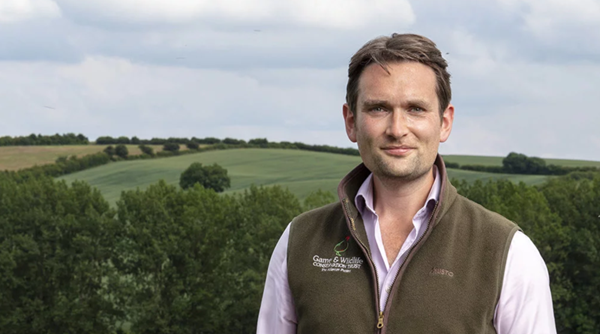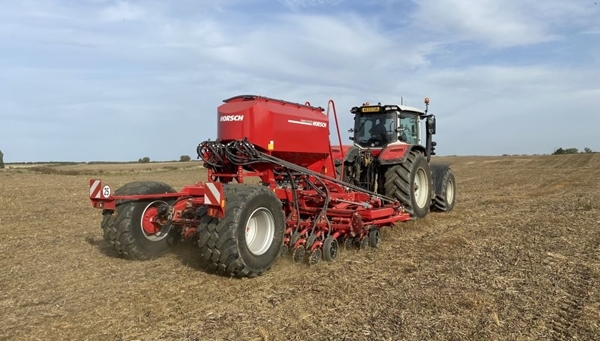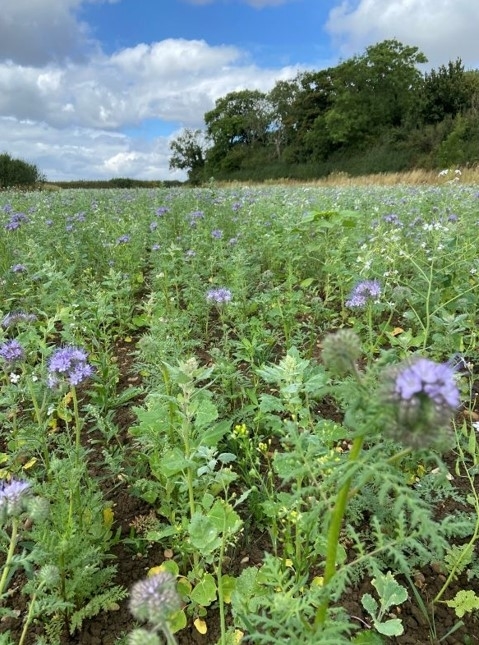
By Joe Stanley, Head of Sustainable Farming, Training & Partnerships at GWCT Allerton Project
It’s been a little over three years since I first took up a role at the GWCT’s lowland research and development farm, the Allerton Project. I came from a thoroughly conventional mixed farming background, with experience of dairy, beef, sheep, and arable production.
Challenges of the post-2015 farming landscape
However, since the end of the old Entry Level agri-environment scheme in 2015, my family farm had dropped out of stewardship, and there was little that we were consciously doing for the benefit of biodiversity, soils, or water quality.
There were two main reasons for this. The switch from the old Environmental Stewardship scheme to the new Countryside Stewardship scheme was, as always seems to be the case with such things, chaotic. The farming press was replete with examples of farmers being left in bureaucratic apoplexy and severely out of pocket, as well as being subject to additional farm inspections which seemed to be conducted on the basis that farmers were liable to be guilty of something and it was just a case of spending enough time poking around until a suitable fine could be levied.
But primarily, as a farm, we just weren’t that historically enthusiastic about the concept of managing our land better for nature; lacking any real understanding of such things, we just presumed that it was doing just fine in the green spaces between the fields of perennial ryegrass and wheat.
 Director of Allerton Alastair Leake holding forth to a group of visitors in a legume fallow
Director of Allerton Alastair Leake holding forth to a group of visitors in a legume fallow
Turning point: the mid-tier scheme and new perspectives
It wasn’t until 2020, driven largely by climate change and the lure of capital grants to replace aged fencing, that I finally submitted a very basic Mid-Tier application to begin from 2021 – having paid an advisor to carry out the entire process.
Three years on, and I marvel at the different perspective I have on the concept of farming for the benefit of nature and climate as a result of my experience at the Allerton Project – the very place at which much of the research that informs the modern agri-environment handbook was conducted.

Direct drilling at Allerton
The evolving landscape of sustainable farming
I often think of how different that Mid-Tier scheme would now look if I could go back to 2020 and start from scratch. That’s before we get into the new scheme gradually replacing Countryside Stewardship in post-Brexit England, the Sustainable Farm Incentive (SFI).
Not only are the traditional options available to farmers to expand and create new habitat around the edges of fields and feed farmland birds over winter, but there is now the option to adopt measures that bring nature and climate-friendly farming into the very heart of the field via options such as no insecticide use, companion cropping, and reduced tillage.
The Allerton Project has spent three decades demonstrating that there need be no binary division between food production and the environment, and that in fact the two can and must be mutually beneficial.
Obstacles to universal uptake of sustainable farming
To me, there are two main obstacles to the universal uptake of the sort of farming we showcase at the Allerton Project.
1. Ambivalence towards environmental responsibility
One is the fundamental ambivalence that I know I felt for the more environmental responsibilities that farmers can demonstrate leadership in. Some farmers are very attuned to the natural world around them and are naturally enthusiastic ‘early adopters’ of any government scheme, past or present, which has supported them in this area. I never was.
However, a small amount of education or knowledge exchange can work wonders in this regard; it’s one of the core attributes of the farmer cluster concept as pioneered by the GWCT, whereby knowledge exchange among and between farmers can drive a newfound passion for not just increasing yields of crops and milk, but for natural capital too. This then becomes self-sustaining and a whole new element of the decision-making cycle on-farm.
2. The need for better agri-environment schemes
The second is inextricably linked to the first. For those (the majority?) of farm businesses who are not those enthusiastic early adopters, there needs to be a well-designed, easy-to-access, and simple agri-environment scheme that has at its heart an attractive financial offer.
It took me five years to finally commit to Mid-Tier because it frankly didn’t look worth the hassle based on the payment I might hope to receive. Once I was through the door, it was much easier to become enthusiastic about the impact of what I could see happening on the ground.

Summer fallow at Allerton
The Sustainable Farm Incentive: successes and shortcomings
For me, therefore, although the SFI has finally morphed into a good programme for encouraging more sustainable farming and landscape management (after multiple iterations and false starts, it must be said), the fundamental problem remains that the ‘income forgone’ model will not offer sufficient incentive for the more sceptical and commercially minded farmer to engage, especially if they are fortunate enough to farm upon highly productive land.
This was problematic enough with the old budget of £2.4bn, inherited from the EU and unchanged in a decade despite inflation. It becomes even more pressing with the latest suggestion that the new government plans to cut that budget by some £100m as part of a wider programme of cost savings across Whitehall – despite most farming and nature groups calling for an increase of at least £1bn to achieve our legally binding national objectives on a range of issues from water quality to biodiversity to climate.
A call to support sustainable farming
My time so far at the Allerton Project has convinced me that there is a better way of farming; the path is not necessarily easy, the outcomes not always straightforward, and the costs of producing more sustainable food cannot be borne on the shoulders of farmers alone.
Neither, however, is it for the taxpayer to be the sole support for farmers in this endeavour: it is essential that the rest of the food supply chain, and society more generally, values the benefits brought by more sustainable, ‘regenerative’ farming methods and supports farmers to make that transition too.
Farming holds many of the solutions to the problems we face today. With just a little support, we can deliver, and I would encourage anyone to come to the Allerton Project at the risk of having your enthusiasm piqued.